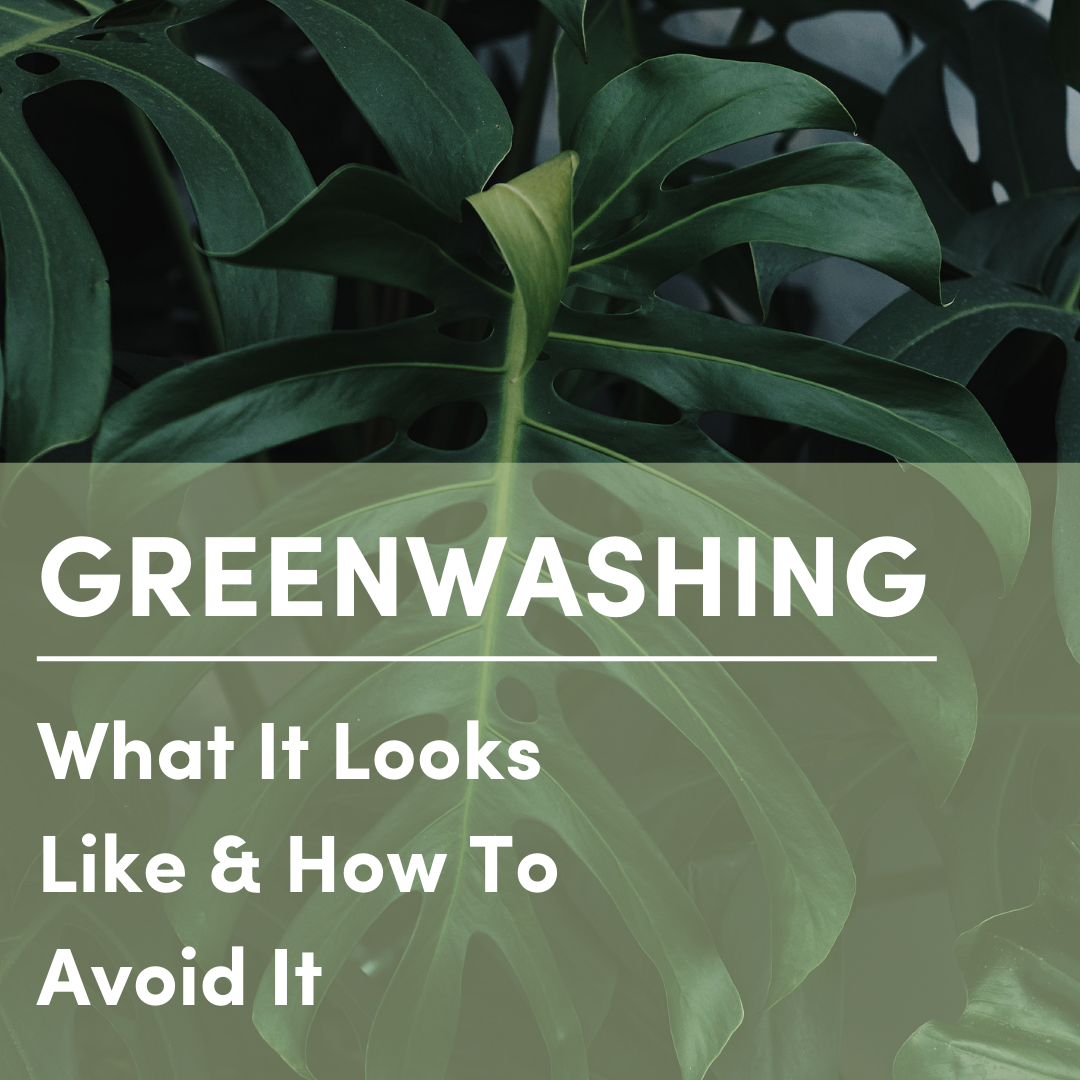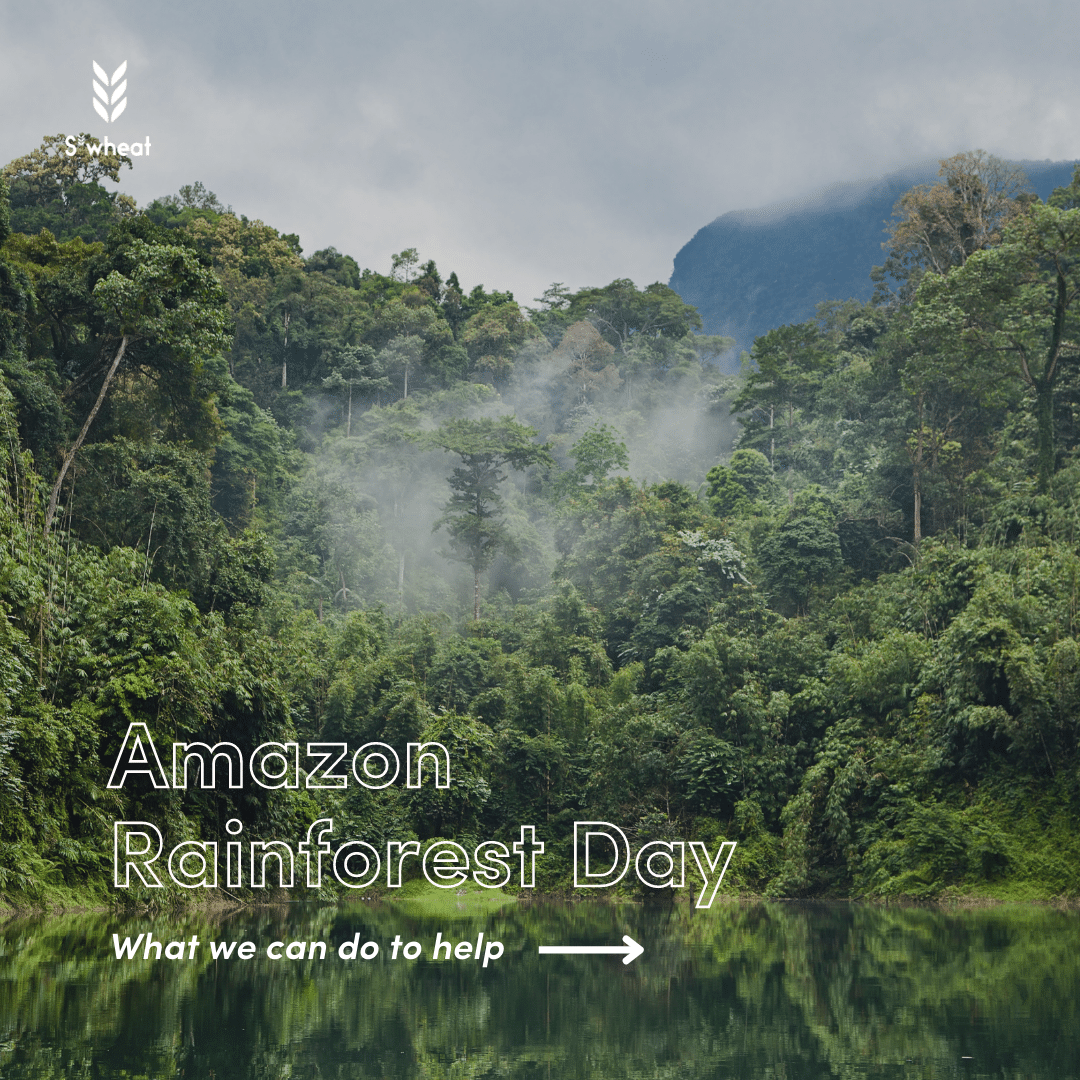How to spot it
There are several tell-tale signs when a company is using greenwashing to pull the wool over your eyes, and not all are easily identified, but if you know what to look for, a quick research into a brand can tell you all you need to know.
- Fluffy language and big buzzwords being thrown around flippantly without any objective evidence to support it. Often, greenwashing brands will chuck in words like “eco-friendly”, “sustainable”, “organic”, “natural”, yet won’t be able to back up their own promises with proof that they’re following through with it. Here at S’wheat, we noticed the amount of so-called sustainable brands claiming that they plant trees with purchases that is never really confirmed - that’s why each native tree we plant is trackable, so our customers can see the proof for themselves and monitor the growth (check out our ever-growing forest with Ecologi, where we have planted over five thousand trees!)
- Evocative and misleading imagery. Similarly to the previous point, many companies can use false, manipulative images on their products to exaggerate the brand ethos. Even something as simple as a small icon of a tree or a lightbulb can be placed on the front of packaging or a logo that will instantly infer that this brand is environmentally conscious. Sometimes, images can be used to show that a product and/or its packaging are recyclable or biodegradable, when realistically if it’s plastic, it won’t really biodegrade, but simply break down into smaller plastic particles which can similarly present harm to the environment.
- Hidden loopholes in the supply chain can be a tricky one to catch out, but it really makes a difference. Even with a product that will biodegrade or is just genuinely non-impactful, if their materials are coming from a supplier that pumps out carbon emissions or fossil fuels unbeknownst to the consumer, this will ultimately continue to be funded through the purchase of this product. This one is definitely a bit more difficult to look into, but ensuring the brand is not openly affiliated with any large sketchy corporations that are known to be pollutive or negatively affecting the earth in any way can at least help sniff out a few greenwashers.
- Information that is intentionally omitted such as wasteful packaging, unethical sourcing, poor workers’ rights, hidden harmful substances, or technically eco-friendly materials that are put through an energy-intensive manufacturing process. It’s certainly a good idea to read up on a company’s policies on their ethics regarding where they source their materials from, how their employees are treated, how they keep all materials and practises sustainable and renewable, and whether they are offsetting the greenhouse gas emissions that are produced from their manufacturing process to be sure that there are no sneaky unjust methods being used.
- Promises that are simply not credible or seem too good to be true. Of course if there is evidence to support it, it will be trustworthy, but if it all just seems a bit too idyllic, chances are after a bit of digging into research you will find that there is no proof aside from the word of the company, particularly if a brand or product is marketed as 100% sustainable with absolutely no accountability for things they would like to achieve or aim for. Honesty is the best policy, so if they are upfront about what they do and their goals to attain a status as a carbon neutral company or a certified B corporation etc. and state what they are doing to work towards this, it’s far more promising than meaningless unfulfilled commitments.
If you’re a business looking to implement more eco-friendly practices by branding with a truly sustainable company, the team at S’wheat would love to help you out. We are committed to our work as a social enterprise and therefore we are open about our sourcing, materials, energy output and offsetting. Our reusable bottle is made from a strong, resilient material of bamboo fibres and wheat, which is sourced as waste material, providing additional income to farmers who would generally burn it and create excess emissions from this. The bottles will remain fresh and undamaged with regular use, but will biodegrade within 6-9 months in an industrial composting site.
Because we never include toxins like BPA or melamine in our products like many supposed eco-friendly bamboo products, this bottle is not only safe for the environment but for your health as well. This also means it’s safe to be used in the dishwasher or microwave (just remove the metal carabiner first). Our naturally insulated thermal wall means it’s perfect for any drinks, hot or cold, and our unscrewable lid makes for an easy clean so after a quick rinse, there will be no tainted tastes or odours lingering behind. It’s the perfect reusable bottle for whatever activity you fancy: commuting to the office, hiking up a mountain, or relaxing with friends, S’wheat has your back wherever you go.
Choosing corporate gifts or co-branding reusable bottles to encourage a circular economy within the workplace has never been easier! Our simple co-branding process can be completed in just four steps and is the perfect place to start in your journey towards true sustainability.
Our Eco-Friendly Co-branding Process:
Choose Your Bottle: Choose from our four distinct colours: Black, Blue, Green and Oat to create your own custom branded reusable bottle, or choose a custom Pantone colour to find your perfect shade.
Send Us Your Logo: Email us your logo file and we will create a mock up image for you.
Engraving: We are proud to partner with a UK based company leading the way in high quality laser engraving and together we brand your bottles.
Impact: With every corporate branded order, we plant a minimum of 100 trackable native trees in your company's name, remove plastic from the oceans, donate profits to protect sea life, and provide an environmental statistics report to showcase all of this. We are a carbon neutral company and are a certified social enterprise.
To learn more about our eco co-branding, check out some of our other articles on the S’wheat blog, such as 3 Ways to Use Corporate Branded Merchandise!




Leave a comment
All comments are moderated before being published.
This site is protected by hCaptcha and the hCaptcha Privacy Policy and Terms of Service apply.